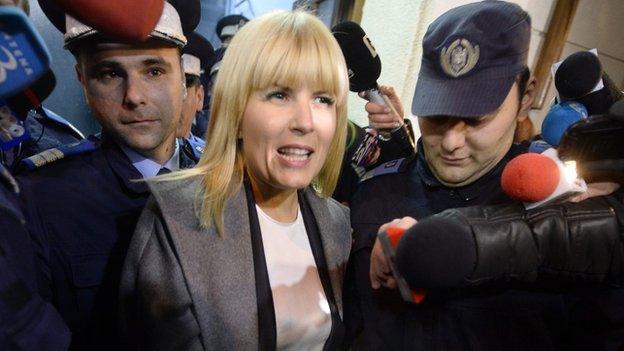Romania warned by EU over 'backtracking' on corruption
- Published
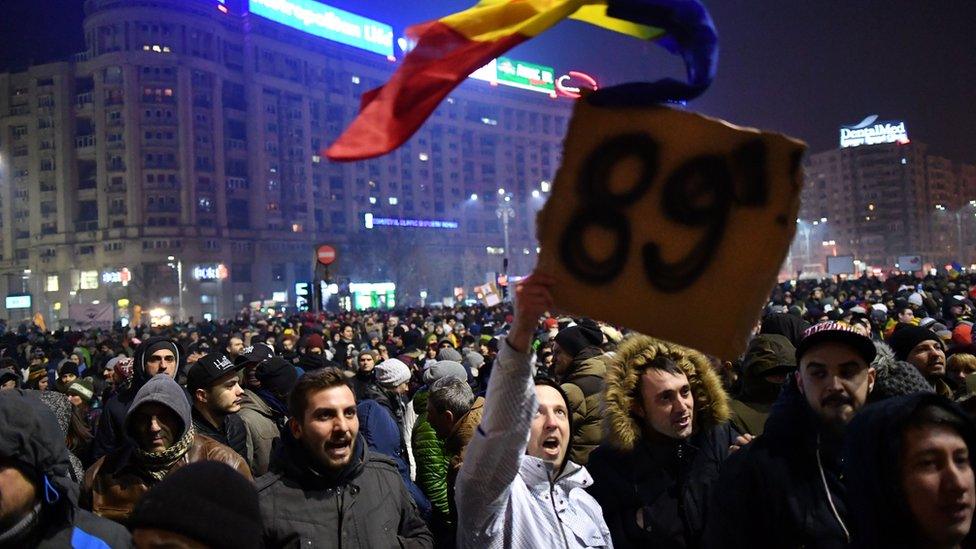
Tens of thousands of protesters have repeatedly thronged Bucharest's streets - some referencing 1989, the year corrupt communist strongman Nicolae Ceausescu was overthrown
The EU has warned Romania against "backtracking" in its efforts against corruption after Bucharest decriminalised some offences.
"The fight against corruption needs to be advanced, not undone," said European Commission head Jean-Claude Juncker.
On Tuesday night, the new government passed a decree that could free dozens of officials in jail for corruption.
That spurred thousands of Romanians on to the streets, some chanting: "You did it at night, like thieves!"
Tens of thousands have protested over recent days - less than a month after Romania's new government took power.
What is the government trying to do?
The leftist government, led by Prime Minister Sorin Grindeanu, of the ruling Social Democratic Party (PSD), says it needs to ease overcrowding in prisons.
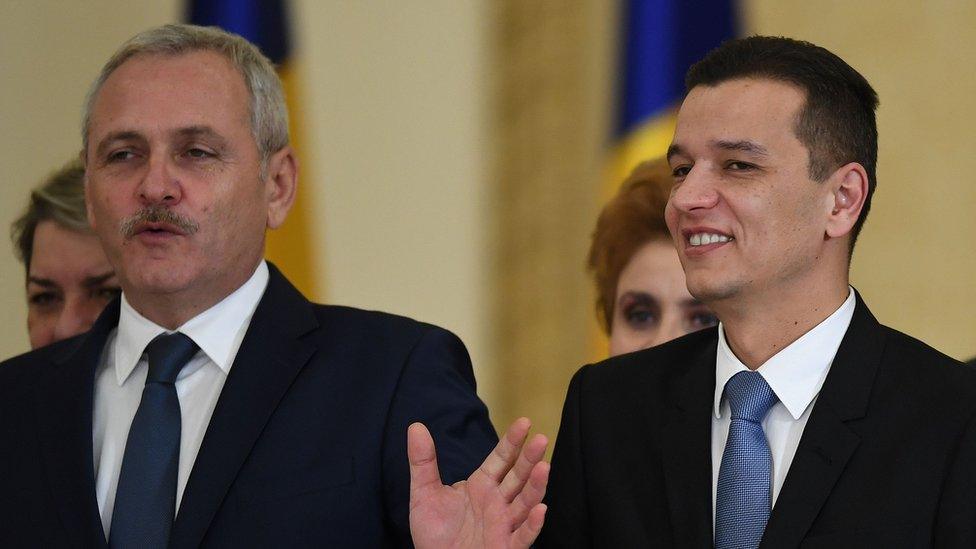
The decree adopted by the government of PM Grindeanu (R) could immediately benefit the leader of his party, Liviu Dragnea (L)
In its emergency decree, passed late on Tuesday, it decriminalises several offences and makes abuse of power punishable by incarceration only if it results in a monetary loss of more than €44,000 (£38,000; $48,000).
One immediate beneficiary would be the PSD leader, Liviu Dragnea, who faces charges of defrauding the state of €24,000.
Why are Romanians so angry?
The anger on the streets is because the decree seems tailor-made to get dozens of public figures serving prison sentences out, reports the BBC's Nick Thorpe in Bucharest.
It would blunt the spear of the powerful National Anti-Corruption Directorate (DNA) in future cases, he says.
The DNA has launched 1,170 prosecutions in the past three years, in cases which cost the state more than €1bn. Its chief prosecutor, Laura Kovesi, estimates that the decree could affect one in three of these.
Ms Kovesi has earned praise from the international community for her efforts to fight corruption, but told AP news agency that this latest legislation would "render the anti-corruption fight irrelevant".
What now?
The issue has set the new government at loggerheads with both the judiciary and the president - less than a month after taking office.
Now Romania's supreme council of magistrates has unanimously agreed to take the emergency decree to the Constitutional Court. That is probably the last legal obstacle in the government's path, our correspondent says.
A separate amnesty law freeing inmates serving sentences of up to five years for non-violent crimes will now be debated by parliament.
- Published23 January 2017
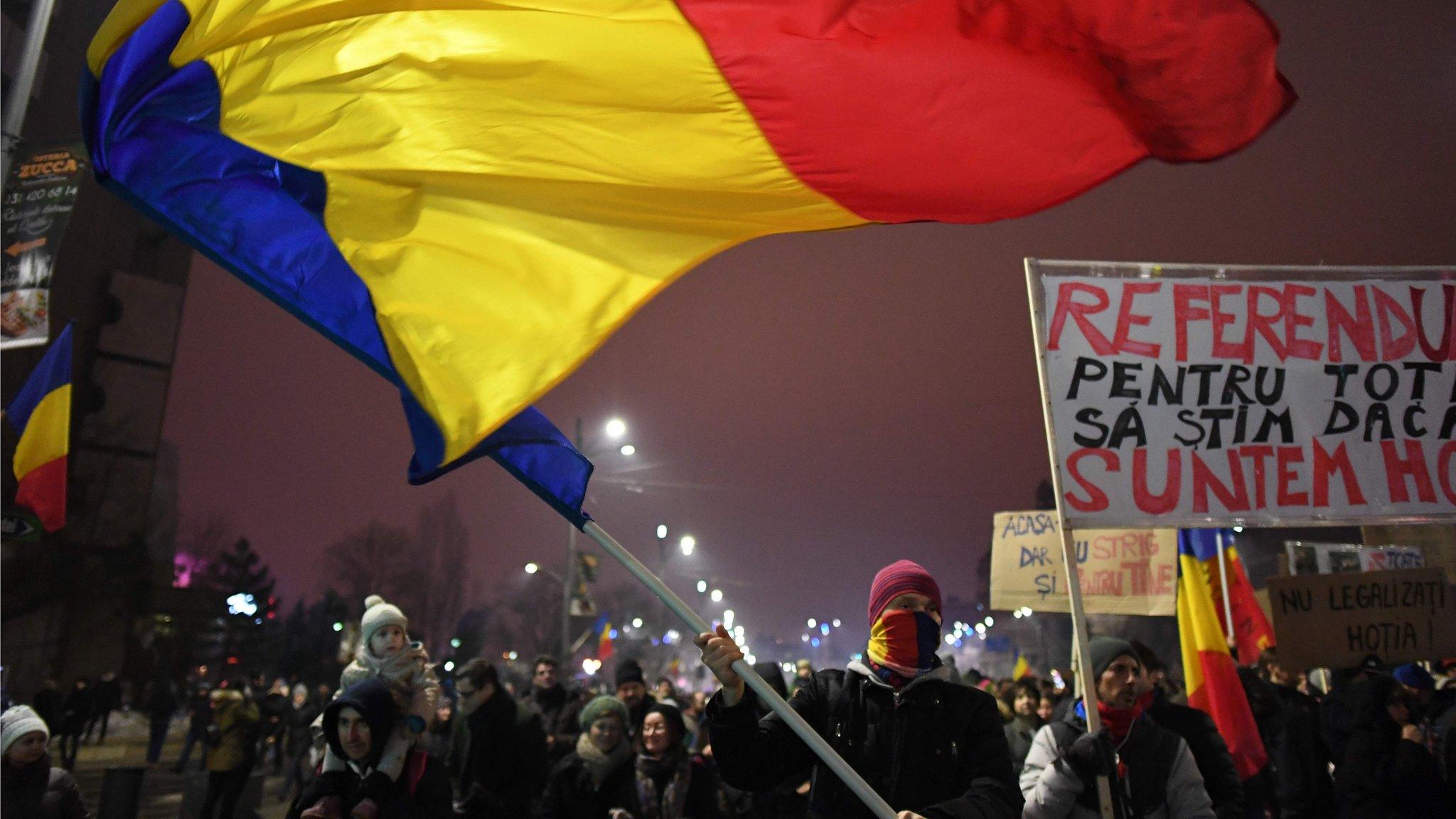
- Published11 December 2016
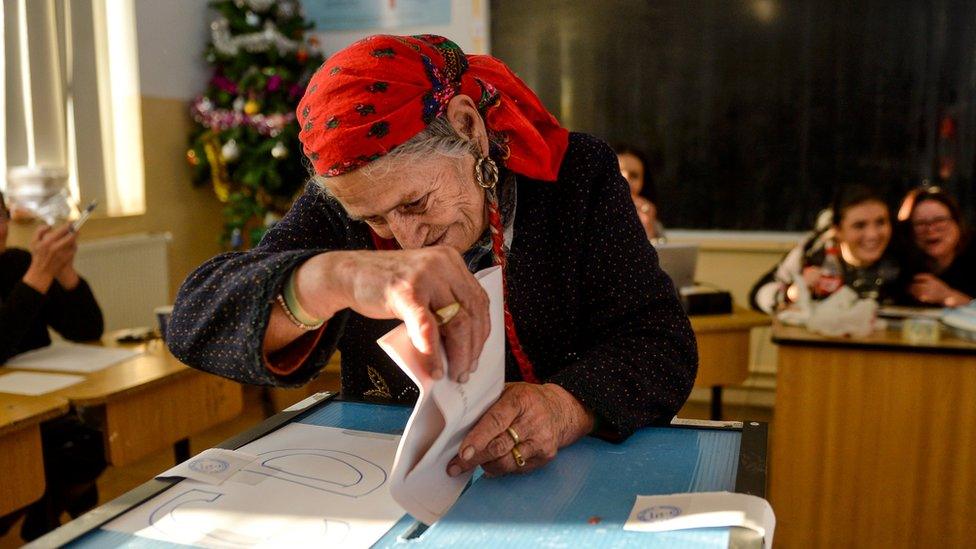
- Published4 November 2015
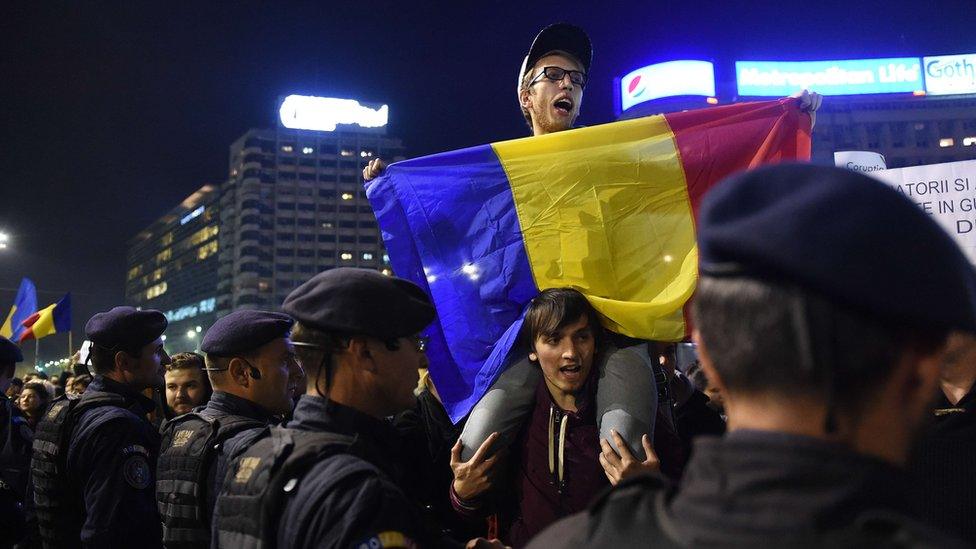
- Published18 December 2024
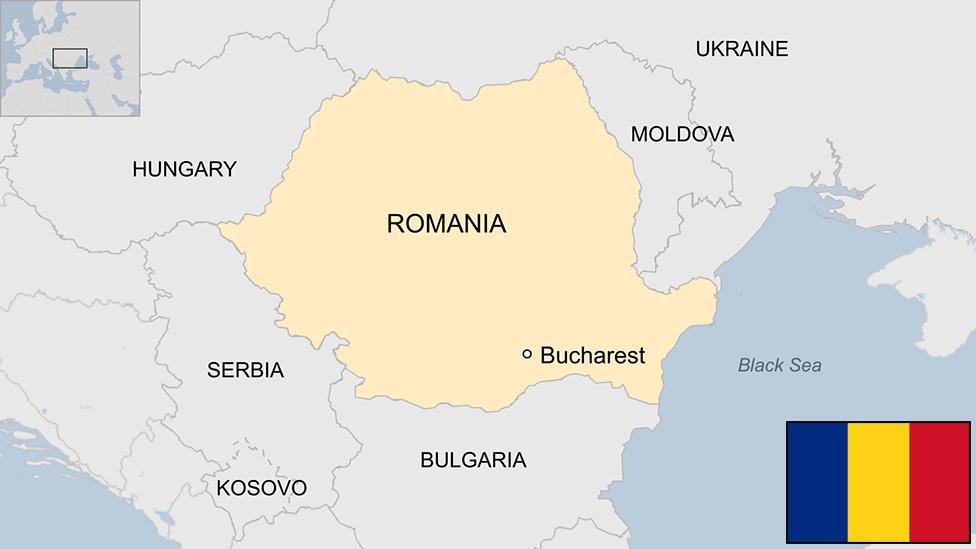
- Published19 February 2015
